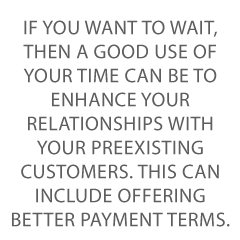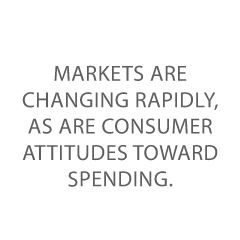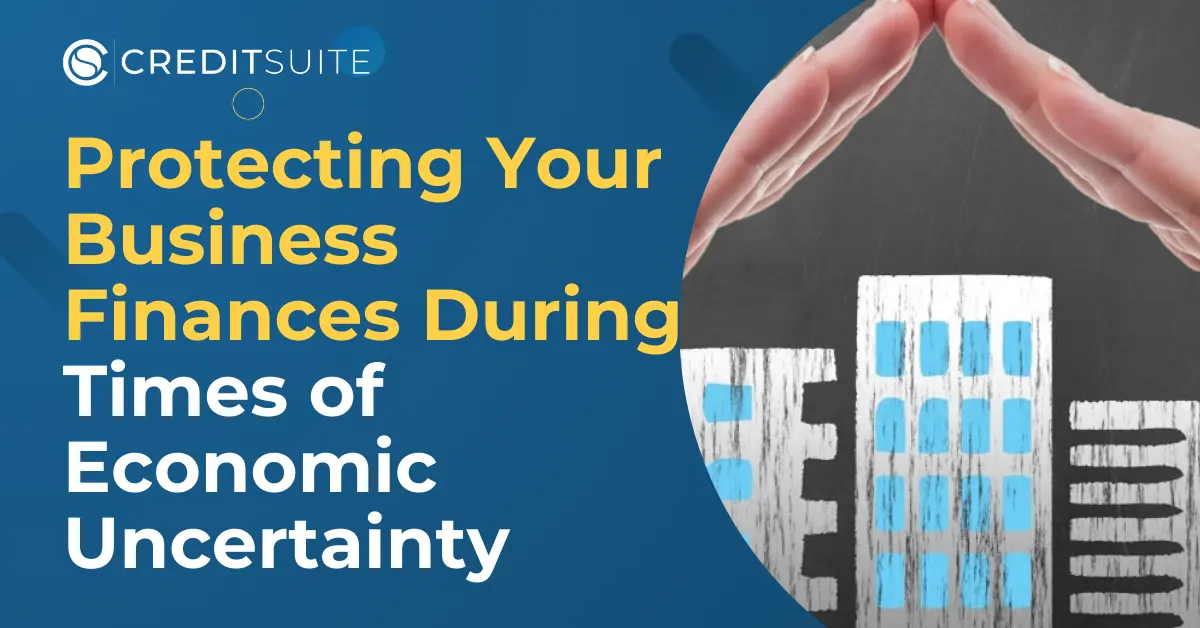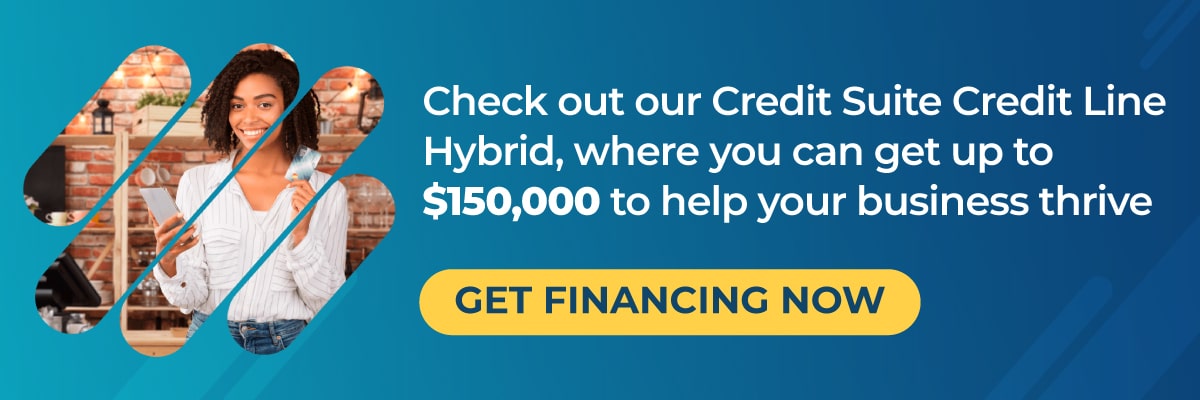Economic Uncertainty Isn’t on the Horizon—It’s Already Here
It’s an understatement to say that times are uncertain right now. Inflation, the (hopefully) winding down pandemic, current supply chain issues, and the situation in Ukraine are all creating massive global economic uncertainty. There’s even economic policy uncertainty in our government.
As a result of this kind of instability, protecting your business assets should be up there. Markets are changing rapidly, as are consumer attitudes toward spending. Succeeding just might get a bit tougher. There is always risk and uncertainty in economics. But now, it’s on steroids.
Protecting Your Business Assets During Economic Uncertainty Should be Top of Mind
Fortunately, there are ways to protect your assets. And yes, business credit and financing are the way to go. Right now is the time when good business credit and a Fundability Foundation™ are key.
Spend Better During Times of Economic Uncertainty
While no one knows what the future will bring, one thing is for certain. Prices are going to be in flux, because economic uncertainty can influence the price of just about anything. Is it better to stock up now, expecting a price rise? Or is it better to try to wait it out and see if prices will get better?
Whichever decision you make, business credit and financing can help.
Stock Up Now with Inventory Financing
If you want to stock up now, then you might not have enough cash on hand to cover a big purchase. This is where inventory financing can come into play. It can make it possible for you to buy big today in anticipation of bigger sales tomorrow.
Inventory financing is a revolving line of credit, or a short-term loan acquired by a company so it can purchase products for sale later. The products serve as the collateral for the loan. There may be restrictions on the type of inventory you can use. This can include not allowing cannabis, alcohol, firearms, etc., or perishable goods. There can be revenue requirements. And there may also be minimum FICO score requirements.
Get approved for a line of credit for 50% of inventory value, regardless of personal credit quality.
Rates are usually 5 – 15% depending on type of inventory. You can get funding within 3 weeks or less. But note that it can’t be lumped together inventory, like office equipment.
Or Wait Out Economic Uncertainty With Merchant Cash Advances
If you want to wait, then a good use of your time can be to enhance your relationships with your preexisting customers. This can include offering better payment terms. But it can hurt your bottom line if you end up waiting for payments from your customers. Not to worry. MCAs can make it possible for you to give your customers more time to pay without harming your own bottom line.
offering better payment terms. But it can hurt your bottom line if you end up waiting for payments from your customers. Not to worry. MCAs can make it possible for you to give your customers more time to pay without harming your own bottom line.
Details on Merchant Cash Advances
An MCA technically isn’t a loan. Rather, it is a cash advance based upon the credit card sales of a business. A small business can apply for an MCA and have an advance deposited into its account fairly quickly. So you can offer Net 30 terms, but not have to wait a month to get paid.
A merchant financing program is ideal for business owners who accept credit cards and are looking for fast and easy business financing. An MCA program works to help you get funding, based strictly on your cash flow as verifiable per your business bank statements. Hence lenders in general will not have any burdensome document requests.
A lender will review three months of bank and merchant account statements. They are looking for consistent deposits. There should be deposits showing revenue is $50,000 or higher per year. A lender also verify time in business of six months or more.
Lenders also want to see that you don’t have a lot of Non-Sufficient-Funds (NSFs) showing on your bank statements. You shouldn’t have a lot of chargebacks on your merchant statements. And you should have more than ten deposits in a month going into your bank account.
In essence, a lender wants to know that you manage your bank and merchant accounts responsibly. And they want to see that have a decent number of consistent credit card transaction deposits each month.
Save More During Times of Economic Uncertainty
How can you save more money when you’ve still got to get supplies for your business? Putting everything on credit is a recipe for a future default. But what about saving when you spend? Or getting rewarded for spending?
The Wex Fleet Card and Wex Flex Card
These are great cards for business credit building because they report to Experian and D&B. Wex offers universal fleet cards, heavy truck cards, and universally accepted business fleet cards. Their cards have features supporting a small business, including a rewards program. But before applying for multiple accounts with WEX Fleet cards, only apply for two cards at a time.
Then, make sure to leave at least two months between applications so that they don’t red flag your account. This will not mean an automatic decline, but it could reduce the amount of credit for which you are approved.
Apply online or over the phone. Terms are Net 15 for the Wex Fleet Card, and Net 15 or revolving for the Wex FlexCard.
To qualify for either card, you need a business entity in good standing with Secretary of State. You also need your EIN and D-U-N-S numbers. Plus you must have a business address which matches everywhere, and all necessary business licenses, if applicable. You’ll need a business bank account, and your business phone number must have a listing on 411. Apply online or over the phone, at (800) 395-0812 (then select option 3).
 The Wex Fleet Card
The Wex Fleet Card
You must be in business for at least one year, with a strong business credit history. In addition, you will have to provide your Social Security number for informational purposes. But if a pull on your personal credit concerns you, contact their Credit Department before applying. Also, they want you to have a good PAYDEX score of 80 or better.
However, if you are in business less than four years or your business credit history is too sparse for the approval to hinge on it, they will require a Personal Guarantee or a deposit of $500 to secure the card.
With this card, you will need to pay it off in full each month.
The Wex FlexCard
There is no minimum time in business requirement. However, you must provide a Personal Guarantee.
Get a rebate of up to 3 cents per gallon on gasoline. Pay no annual fee. You can carry a balance with this card, if necessary.
Brex
Another great card to help you save more as you spend is the Brex card. It is a particularly good card for startups.
Brex is a business money management system that integrates with your accounting software. It allows you to track expenses and, depending on the level of service you choose, can also help with paying bills and controlling spending.
The easiest way to use Brex for both managing finances and building business credit is to open a Brex Cash account. Brex is not a bank, but rather a banking alternative. They have a partnership with the FDIC and your funds are secure.
Everyone that opens a Brex cash account gets a corporate card. It works just like a debit card, drawing from your Brex Cash balance daily. However, unlike a debit card, Brex reports these payments to Dun & Bradstreet, Experian, and Equifax every month, thus helping build your business credit score.
Since this card is secured by the balance in your Brex cash account, and limited to that balance, you do not have to worry about underwriting.
This card offers rewards in terms of points that can be redeemed for travel, cryptocurrency, cash back, statement credits, gift cards, and more. There are even virtual card options for online spending. Brex integrates with common accounting programs including Quickbooks, Xero, NetSuite, and Gust.
Since the card is paid off monthly, you do not pay interest. There is no fee for standard service, but you can upgrade to premium at a cost. Currently premium accounts start at $49.99 and offer more expense management options. And you can even use rewards points to pay for it.
Terms
This card is paid daily from your balance of money deposited into a Brex Cash account. No minimum balance is necessary.
Brex does not offer balance transfers from other cards to Brex, due to not requiring a personal guarantee. However, they will perform balance transfers within Brex accounts.
Qualifying
To qualify for a Brex card, you need a business entity in good standing with Secretary of State. You also need your EIN and D-U-N-S numbers. Plus you must have a business address which matches everywhere, and all necessary business licenses, if applicable. You’ll need a business bank account,
In addition, you will have to provide your Social Security number on your application, for informational purposes. But if a pull on your personal credit concerns you, talk to a representative before applying.
Apply online.
Protect Your Business During Economic Uncertainty: Takeaways
While our economy is in flux, your main focus should be to maintain and grow your business’s assets. Good business credit will help your business now and, in the future, when economic uncertainty starts to diminish.

